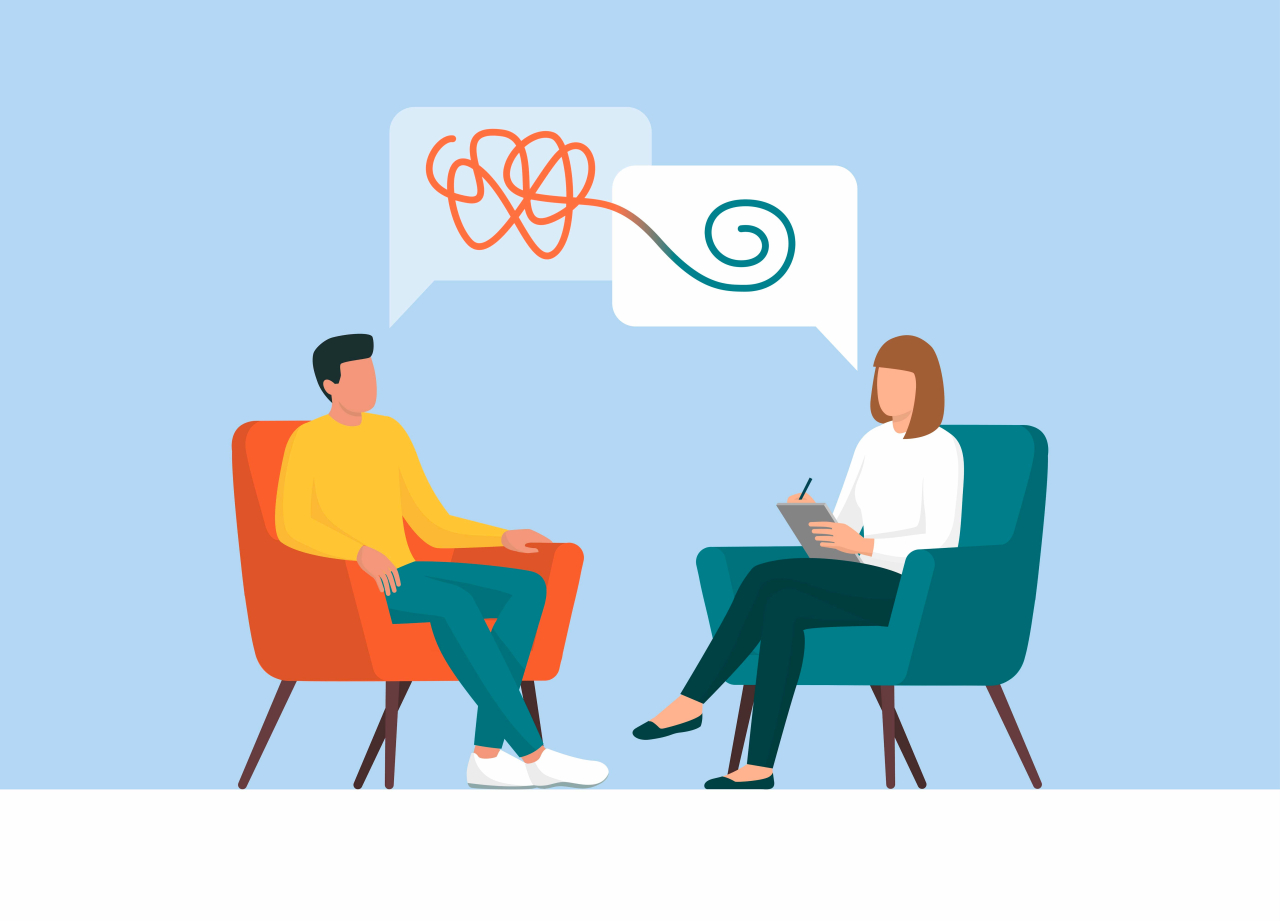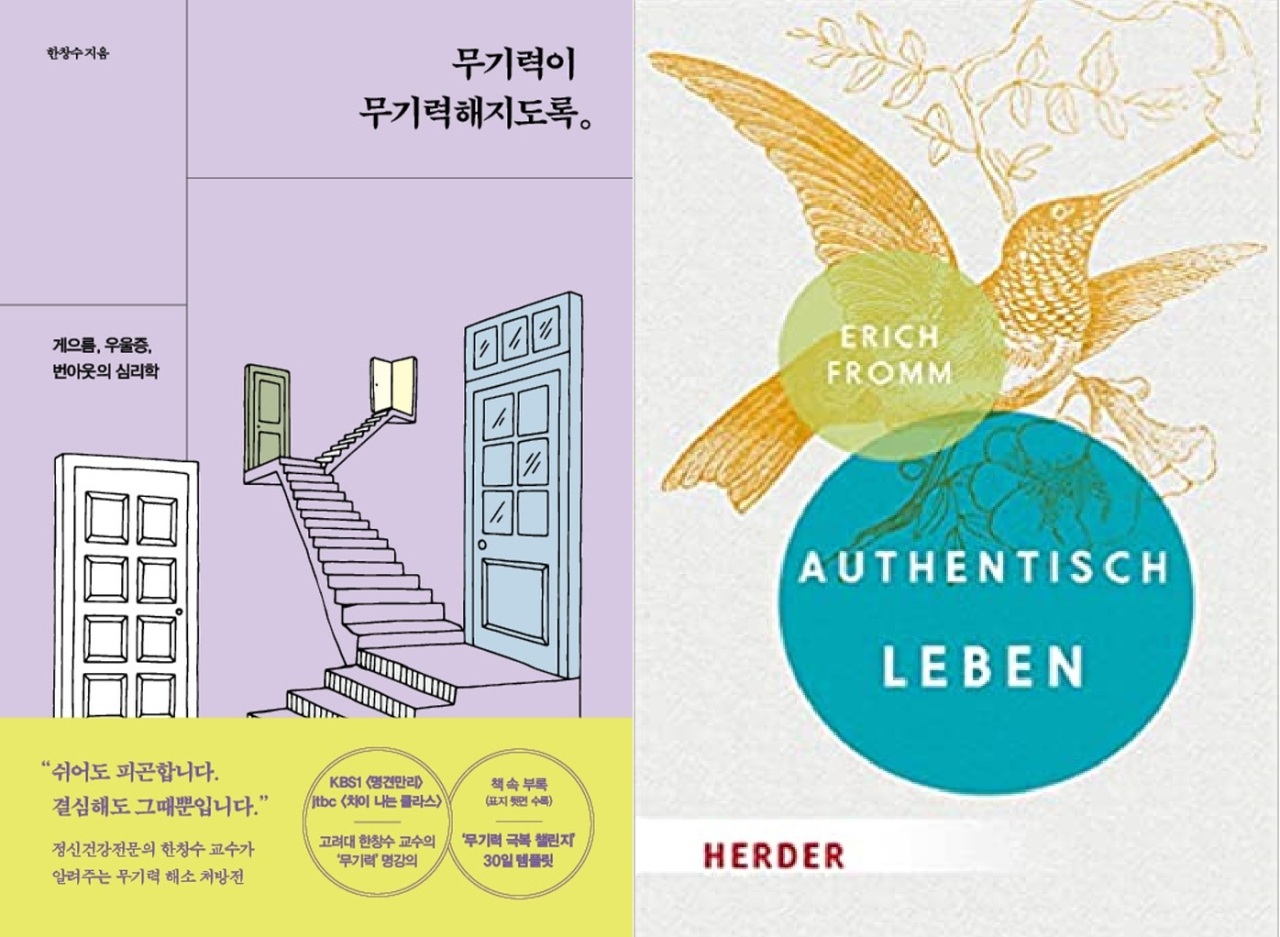Feeling lethargic too often? Two books offer advice
German psychologist Erich Fromm says self-exploitation, lack of autonomy make us feel inert, while local medical scholar analyzes underlying mental, emotional or physical causes behind the ‘symptom’
By Park Han-naPublished : Feb. 22, 2022 - 17:13

In a country known for long working hours, short vacations, and a culture of competition and pressure, many Koreans experience lethargy and burnout syndrome. It’s so common that it is even regarded as a rite of passage at the workplace.
Koreans worked 1,967 hours a year per employee in 2019, 241 hours more than the Organization for Economic Cooperation and Development average of 1,726 hours. It had the second-longest working hours among OECD member countries.
A survey conducted on some 72,000 people in 2020 by Blind, an anonymous forum app for employees, shows that seven in 10 office workers in Korea have experienced burnout syndrome.
Experts say it often starts with feeling low in energy, exhausted, overwhelmed and unmotivated. But ignoring those feelings for a lengthy period may ultimately culminate in depression.
For those searching for answers on why we feel like not doing anything, and find it hard to even get out of bed, a theory from German social psychologist and humanistic philosopher Erich Seligmann Fromm may still be relevant.
Koreans worked 1,967 hours a year per employee in 2019, 241 hours more than the Organization for Economic Cooperation and Development average of 1,726 hours. It had the second-longest working hours among OECD member countries.
A survey conducted on some 72,000 people in 2020 by Blind, an anonymous forum app for employees, shows that seven in 10 office workers in Korea have experienced burnout syndrome.
Experts say it often starts with feeling low in energy, exhausted, overwhelmed and unmotivated. But ignoring those feelings for a lengthy period may ultimately culminate in depression.
For those searching for answers on why we feel like not doing anything, and find it hard to even get out of bed, a theory from German social psychologist and humanistic philosopher Erich Seligmann Fromm may still be relevant.

In “Authentisch Leben (Authentic Life),” a compilation of lectures and writing by Fromm, edited by Rainer Funk, the scholar says the brutal labor exploitation of slaves and the colonized may have ended about 100 years ago, but the practice has continued in other forms.
“Today, everyone has become the subject of self-exploitation.”
Fromm argues people feel inertia because they relinquish their individuality with the “desire not to be different from others” and the “fear of being found out.”
“Modern people rely on anonymous authority and accept a self that is not theirs. The more you do it, the more helpless you feel, and the more you see yourself forced to conform,” Fromm says in the book.
To stop feeling sluggish and drained, Fromm urges people to act spontaneously to exert their influence on the fate of themselves and society.
The only satisfaction that can truly bring human happiness is to experience moments of activity, but people chase after fake illusions of happiness and success, he says.
While Fromm mainly found the sources of inertia to be a lack of freedom and autonomy, Changsu Han, professor at Korea University College of Medicine, sees lethargy as multifaceted and a “symptom” rather than a “psychiatric disease.”
In his book “Recharging Yourself,” published in August last year, Han said one’s pathological state overlaps with the symptoms of fatigue, burnout and depression to a large extent.
Long-term fatigue and lethargy is “a signal to go back to the basics.” To decipher the cause of lethargy, he analyzed it from mental, emotional and physical aspects.
Lethargy is associated with how to accept failures and discouraging events occurring in our lives, and how to control the emotions which follow them, he said.
But the first thing he does when he sees patients suffering from a feeling of inertia is checking on their physical soundness. He checks to see whether they have other underlying diseases, and eat a healthy balanced diet accompanied by regular exercise.
Then, he recommends readers to gauge their burnout and depression scales by simply taking online tests. The professor stressed the importance of putting aside the time to one‘s determination for setting achievable goals and finding one’s life purpose.
“I really want to ask you not to become anxious or impatient for fear that you will not be able to do well or not be perfect,” he said. “It is enough for you to do the work you have set for today. Then when a crisis strikes, eat well, exercise and get into productive rest.”
“Today, everyone has become the subject of self-exploitation.”
Fromm argues people feel inertia because they relinquish their individuality with the “desire not to be different from others” and the “fear of being found out.”
“Modern people rely on anonymous authority and accept a self that is not theirs. The more you do it, the more helpless you feel, and the more you see yourself forced to conform,” Fromm says in the book.
To stop feeling sluggish and drained, Fromm urges people to act spontaneously to exert their influence on the fate of themselves and society.
The only satisfaction that can truly bring human happiness is to experience moments of activity, but people chase after fake illusions of happiness and success, he says.
While Fromm mainly found the sources of inertia to be a lack of freedom and autonomy, Changsu Han, professor at Korea University College of Medicine, sees lethargy as multifaceted and a “symptom” rather than a “psychiatric disease.”
In his book “Recharging Yourself,” published in August last year, Han said one’s pathological state overlaps with the symptoms of fatigue, burnout and depression to a large extent.
Long-term fatigue and lethargy is “a signal to go back to the basics.” To decipher the cause of lethargy, he analyzed it from mental, emotional and physical aspects.
Lethargy is associated with how to accept failures and discouraging events occurring in our lives, and how to control the emotions which follow them, he said.
But the first thing he does when he sees patients suffering from a feeling of inertia is checking on their physical soundness. He checks to see whether they have other underlying diseases, and eat a healthy balanced diet accompanied by regular exercise.
Then, he recommends readers to gauge their burnout and depression scales by simply taking online tests. The professor stressed the importance of putting aside the time to one‘s determination for setting achievable goals and finding one’s life purpose.
“I really want to ask you not to become anxious or impatient for fear that you will not be able to do well or not be perfect,” he said. “It is enough for you to do the work you have set for today. Then when a crisis strikes, eat well, exercise and get into productive rest.”



















![[Today’s K-pop] Treasure to publish magazine for debut anniversary](http://res.heraldm.com/phpwas/restmb_idxmake.php?idx=642&simg=/content/image/2024/07/26/20240726050551_0.jpg&u=)